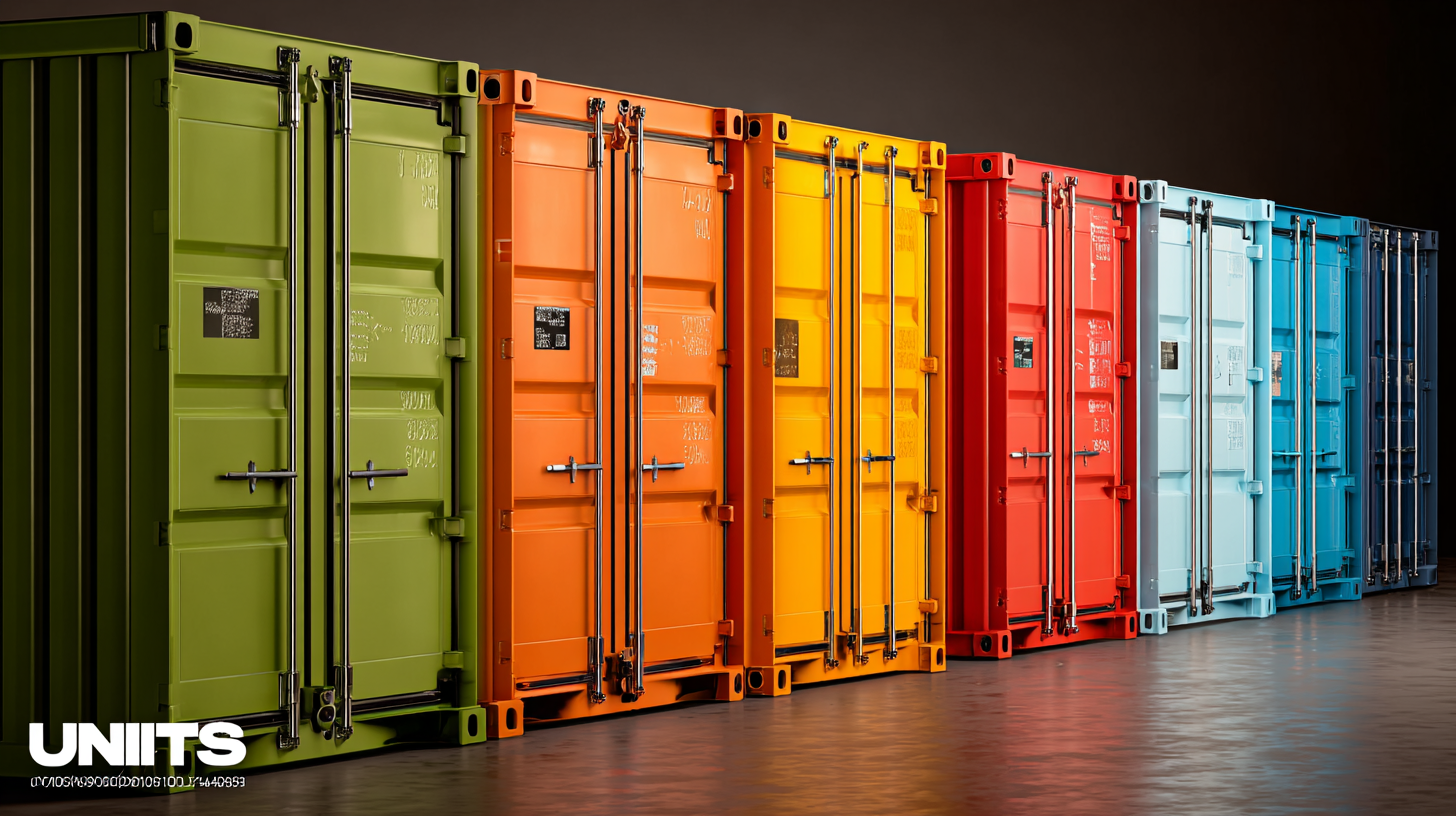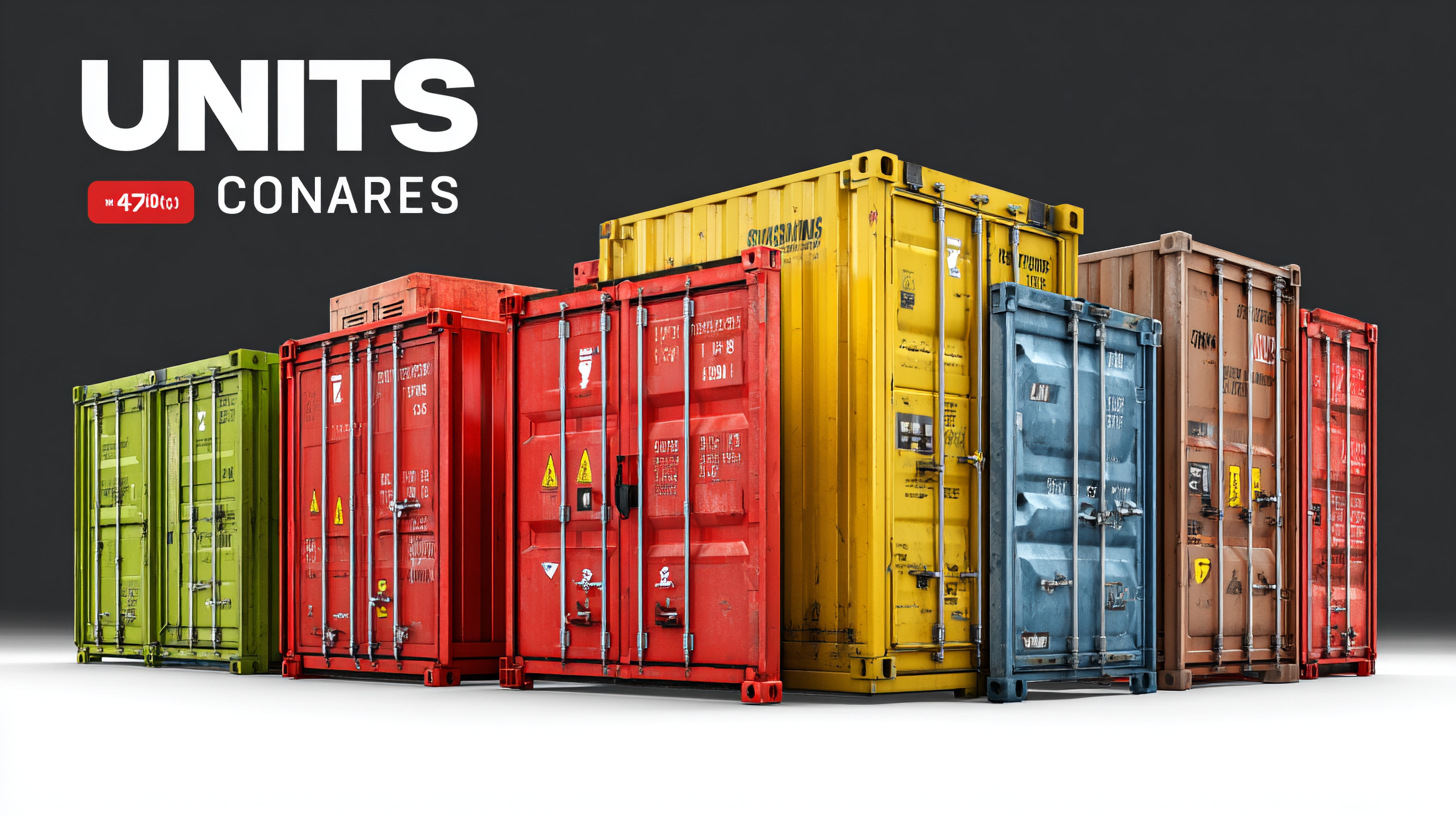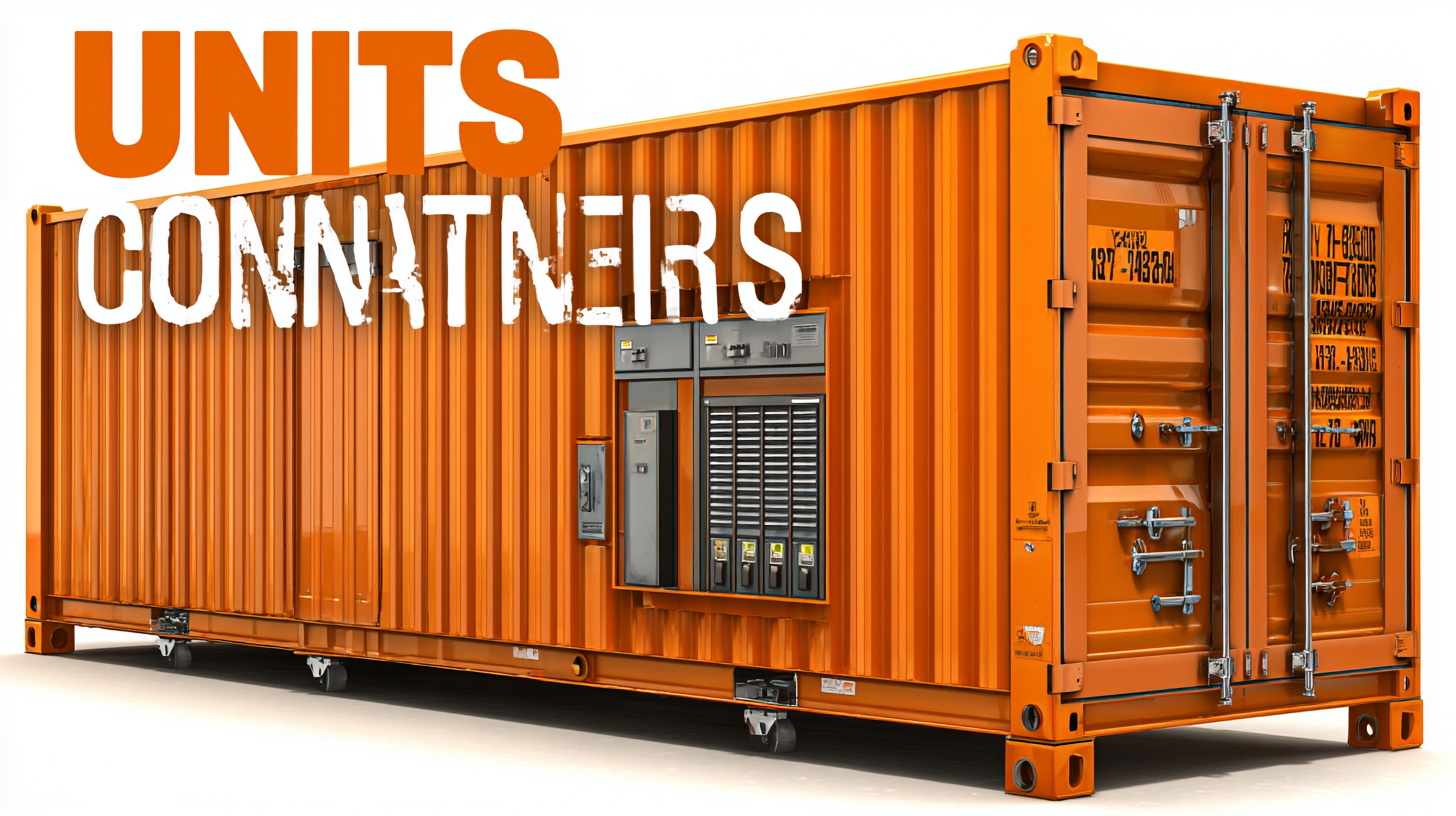In today’s fast-paced business environment, the demand for efficient storage solutions is more critical than ever. According to a recent industry report, the global market for storage containers is projected to grow at a CAGR of 4.8% from 2023 to 2030, driven by the increasing need for space optimization and supply chain resilience. One of the most effective options for businesses looking to enhance their storage capabilities is the use of Units Storage Containers. These versatile units not only offer affordability and flexibility but also cater to a variety of industries, from retail to construction. However, selecting the right storage container requires careful consideration of several factors including size, durability, and functionality. This ultimate checklist aims to guide you through the essential criteria to ensure you choose the best Units Storage Containers that effectively meet your unique business needs.

When choosing storage containers for your business, there are several important factors to consider that can greatly enhance operational efficiency. First, assess the size and capacity of the containers in relation to your inventory needs. Containers that are too small can lead to overcrowding and disorganization, while excessively large ones may waste valuable space. It's essential to strike a balance that allows for easy access and management of your goods.

Additionally, consider the material and durability of the storage containers. High-quality, robust materials not only protect your items from environmental damage but also withstand the rigors of daily handling. Whether you need weather-resistant options for outdoor storage or secure containers for sensitive products, selecting the right type ensures longevity and reduces replacement costs over time.
Lastly, evaluate whether the containers are stackable or modular, as this can optimize your storage layout, maximizing available space without compromising accessibility.
When selecting storage containers for your business, understanding key specifications is crucial to ensure that your investment meets industry standards. First and foremost, consider the dimensions and weight capacity of the container. Different businesses have unique storage needs, and a container that is too small or not sturdy enough can lead to inefficiencies. It's essential to select units that not only fit your space but also support the weight of the items you intend to store.

Another critical specification is the material of the storage containers. Options like steel, plastic, and wood each come with their own advantages and disadvantages. Steel containers offer superior security and durability, making them ideal for heavy-duty use, while plastic containers can be lighter and more versatile for easy handling. Additionally, consider weather-resistant features, especially if your containers will be used outdoors or in environments with temperature fluctuations. By focusing on these crucial specifications, you can ensure that your storage solutions align with industry standards, ultimately enhancing your operational efficiency.
When selecting storage containers for your business, evaluating container durability is paramount. The materials used in construction play a critical role in determining how well a container will withstand environmental stresses. For instance, steel containers offer exceptional strength and resistance to harsh weather conditions, making them ideal for outdoor storage solutions. Conversely, plastic containers may provide lightweight portability, but their durability can vary significantly based on their design and the quality of the material used. Always opt for high-density polyethylene (HDPE) for enhanced strength and resistance to UV rays, which can extend the lifespan of your containers.
In addition to material considerations, the design features of storage containers can significantly impact their overall durability. Look for containers with reinforced corners and seams, as these areas are often subject to the greatest stress during handling and transport. Also, consider stackable designs that not only allow for efficient use of space but also distribute weight evenly, reducing the risk of deformation. Investing in containers that incorporate drainage systems can further enhance durability by preventing water accumulation and potential rust or mold growth. By focusing on these key aspects, you can ensure that you choose storage containers that will effectively meet your business needs for years to come.
When selecting storage containers for your business, cost-effectiveness is a crucial consideration. A recent report by IBISWorld indicates that the self-storage industry has seen a
3.5% annual growth, emphasizing the value many businesses find in renting storage units. The key to successful investment in storage units lies in
balancing upfront costs with potential long-term savings. For instance, investing in higher-quality containers may involve a higher initial expense, yet the durability and protection they offer
can save you from costly damages in the future.
Tip: Always calculate the total cost of ownership, including maintenance, insurance, and potential replacement expenses over time,
to make an informed decision.
Moreover, consider the location of the storage units. Proximity to your business can reduce transportation costs and time, further enhancing cost-effectiveness. According to a study by SpareFoot,
businesses strategically placed closer to their storage facilities can save up to
25% on logistics expenses annually.
Tip: Evaluate different storage options, such as climate-controlled units or drive-up access,
to find the best fit for your specific operational needs while keeping long-term savings in check.
In today's fast-paced business environment, the role of technology in storage solutions cannot be underestimated. Modern storage containers have evolved significantly, incorporating innovative features that enhance operational efficiency and streamline logistics. For instance, the integration of IoT (Internet of Things) allows for real-time tracking of inventory, enabling businesses to monitor their stock levels remotely. This technology not only saves time but also reduces the likelihood of overstocking or stockouts, leading to improved customer satisfaction.
Additionally, advancements in mobile applications have made it easier for businesses to manage their storage units. With user-friendly interfaces, these applications facilitate instant communication and updates regarding storage conditions, including temperature and humidity levels, which is crucial for businesses dealing with perishable goods or sensitive materials. Furthermore, automated features such as climate control and security monitoring provide peace of mind, ensuring that the stored items are protected and maintained under optimal conditions. Embracing these technological advancements is essential for any business looking to optimize its storage solutions and gain a competitive edge.